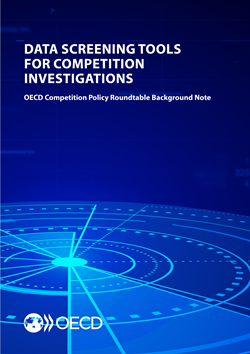Competition
Data Screening Tools for Competition Investigations
|
Data screening tools are empirical methods that competition authorities can use to detect illegal activity. Such methods are often used before opening an investigation, to check for suspicious behaviour that is ‘flagged’ if certain criteria are met, or following a complaint or whistle-blower report, to confirm or validate allegations. The most common use of screening is aimed at uncovering anticompetitive horizontal agreements, particularly in procurement markets. These are often empirical screens that can be enriched with machine learning techniques. In November 2022, the OECD held holding a roundtable on "Data Screening Tools for Competition Investigations" to explore developments in digital screening tools in academic literature and competition authority practice. It covered cartel screening techniques, the requisite data quality, the value and risks of publicising cartel screens, and investigative successes based on screening. Discussions showed that competition agencies are at different stages of developing such tools, and it highlighted the value of inter-agency co-operation in developing and applying screening tools. This topic will become increasingly relevant as data availability and screening methods improve.
> Read the Background Note (Also available in French) > See the full list of best practice roundtables on competition |
|
Documents
OECD Background note l Version française Detailed Summary of the discussion EN | FR Executive Summary with key findings EN | FR Contributions from delegations |
Related Documents
